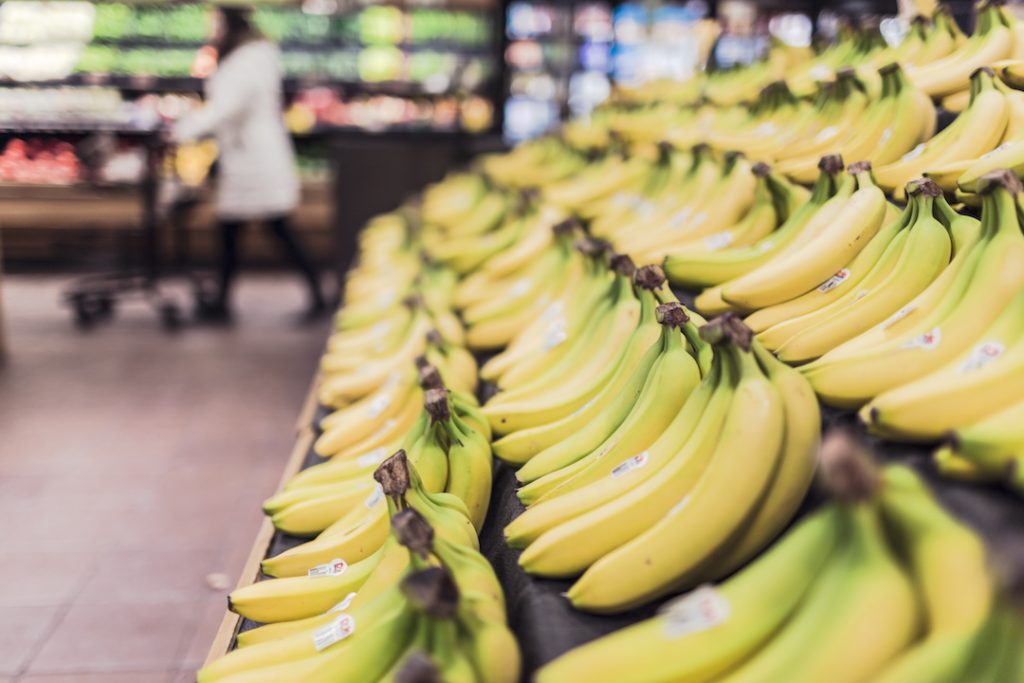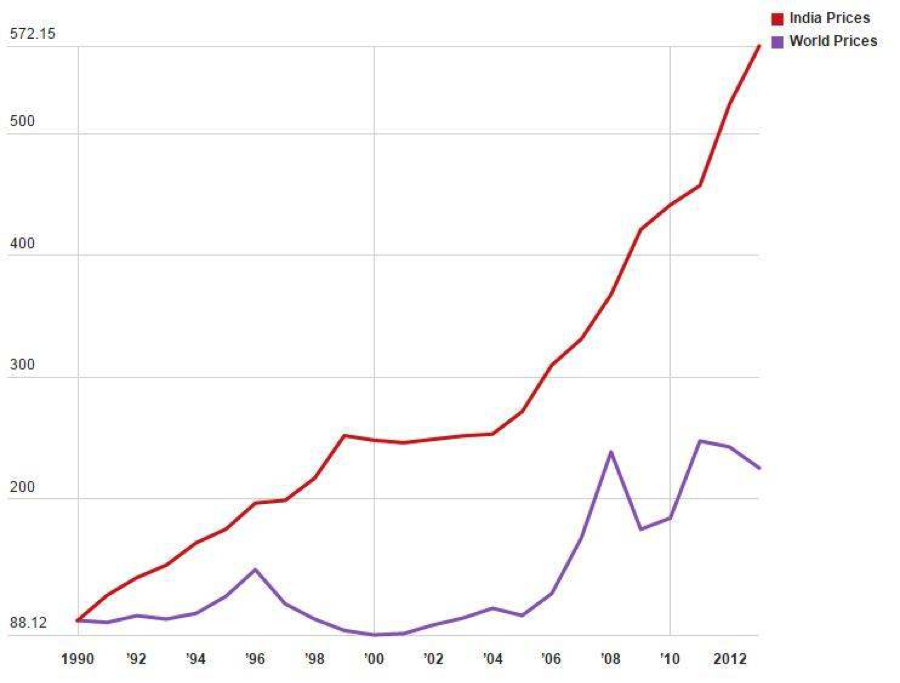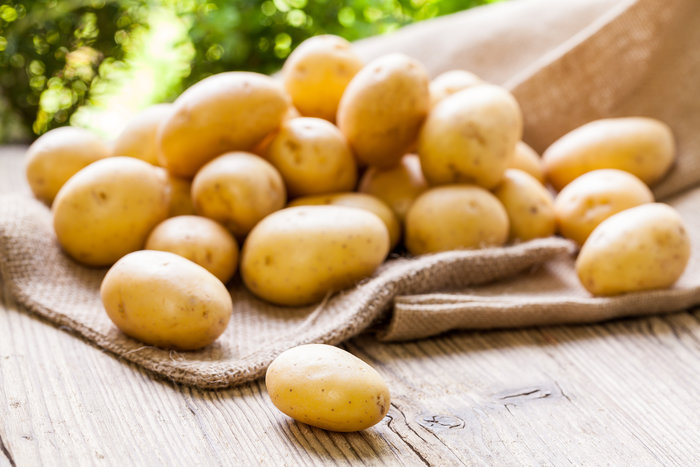General
Why Is India Paying A Bomb For Food As The World Observes A Price Slump?
If reports are to be believed, global food prices are at an all time low. The past 7 years have not seen such a price slump like the one that has been recorded in August of this year. Apparently prices of cereal, sugar, milk, vegetable oil slumped. Even Meat prices fell 18% from the same month last year.
Food Price Index
“Ample supplies, a slump in energy prices and concerns over China’s economic slowdown all contributed to the sharpest fall of the FAO Food Price Index in almost seven years,” The UN organization said in a statement.
To an average Indian that’s ridiculous. If global food prices are slipping, how is our food getting costlier by the day?
Protective Food Policy
Since 1990, the Food and Agriculture Organization’s food price index has nearly doubled. However, India’s wholesale price index has increased nearly five times. The reason being India’s protectionist food policy.
Raising import tariffs with surplus stock, export bans during shortages may have closed the economy to global food price volatility, but didn’t do much otherwise.
Here is a relative study of commodity prices in India versus the world.
India vs. World: Grain prices

You don’t have to be a Statistician to understand that while world grain prices have doubled, Indian prices went up more than five times.
India vs. World: Dairy prices

As you can infer, world dairy prices have tripled while Indian prices have jumped five times.
India vs. World: Edible Oil prices

Once can see Indian oil prices have risen in accord to the world prices.
RBI’s Take
However, a 2014 press release from the Reserve Bank of India (RBI) clearly states what it thinks are the reasons behind food inflation.
“A number of proximate factors such as increasing demand particularly arising from higher rural wages, rising agricultural cost of production, changing consumption pattern favoring protein items, increases in minimum support prices (MSPs) and droughts in certain years are believed to have led to higher food inflation.”
The study shows that the persistence of food inflation in recent years can largely be ascribed to higher wages, particularly, in the rural sector pushed further by hikes in MSP of rice and wheat and input cost inflation.
Crux of the matter
Simply put, the reasons RBI suggests are:
- The Rural population is earning more (err..)
- The government has increased the Minimum Selling Price of food-grains (Shouldn’t it?)
- The cost of agriculture has gone up (why?)
And that’s your food for thought (because that’s the only kind of food we can have heaps of!) for the day.






















